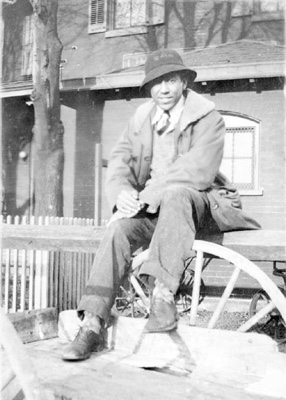Does the Movie “Marshall” Give Us a False Langston Hughes?

Marshall, the theatrical portrayal of Thurgood Marshall with swag is entertaining. I just had one wee problem; it wasn’t history especially as it depicted the relationship between Marshall and his Lincoln University classmate Langston Hughes. Now it is permissible for films and novels to take artistic liberty in any type fictional representation. However, I am always concerned when those liberties stray too far and turn historical personalities into unrealistic caricatures. In this instance, I was struck by Jussie Smollett’s brief portrayal of Langston Hughes. In my mind and research it just didn’t get Hughes quite right, especially how he handled his sexuality.
Now let me say unambiguously sexuality should be accorded its importance as an interpretive lens of history and culture. For years humanities scholars failed to take gender and sexuality into account. Nevertheless, we still need to be critically respectful as to how individuals in their time described their own sexual practices, or if they chose to or not to describe them. What we cannot do is read into history something that does not belong to a person or their time.
What we know of Hughes’s time is that the Harlem cultural renaissance was full of young people on the move from everywhere. In Harlem egos and libidos bubbled over just like college students on spring break vacation. Hughes’s New York City was bohemian full of 1920s youthful hedonism that Ann Douglas described in her book Terrible Honesty. Openness and experimentation was everywhere. The historian Kevin Mumford has done much to shed light on sex and urbanization in his book Interzones: Black/White Sex Districts in Chicago and New York in the Early Twentieth Century. Though elders like W.E.B. DuBois hid behind Victorian sensibilities for political and cultural reasons, we now know that Harlem, Chicago, and other cities had old and young “carrying on” behind closed doors in what was then considered less than respectful manner. And Hughes was part of this culture that included historical personalities with varying sexual penchants—including Howard University’s Alain Locke, Lucy Digg Slowe, writers Countee Cullen, Zora Neale Hurston, entertainers Ethel Waters, Alberta Hunter, and Bessie Smith. Whether these persons were open or closed about their sexual behavior they lived in a world (like our own) where the individual gets to decide whom to tell about whom they love.
So this brings back to Mr. Smollett’s brief portrayal of Hughes in Marshall. Smollet’s role was overly influenced by Isaac Julien’s evocatively rich documentary film Looking for Langston. Julien’s 1989 film is a deeply impressionistic documentary and asks the important questions about Black males who love each openly and erotically by searching the imagined sexuality of Hughes. Though it is a landmark film, Julien’s reality was not Hughes’s. Following Julien’s film, literary historian Faith Berry’s Before and Beyond Harlem: A Biography of Langston Hughes asserted that Hughes was gay, which he may well may have been. Berry, of course, sought to challenge Arnold Rampersad’s two-volume biography The Life of Langston Hughes, which primarily followed Hughes’s own paper trail. The problem with Berry’s account is that it too was impressionistic. And this is one of the problems that my colleagues and I faced as we gathered together to form the Dream Documentary Collective and the Lawrence Arts Center to develop and produce a two-part documentary film on Langston Hughes’s art and life titled I, Too, Sing America: Langston Hughes Unfurled.
As we began developing this project we thought long and hard about Hughes’s sexual identification and persona. We asked ourselves how central was his sexual self-understanding to him? From our research and conversations, we concluded that it is vital to ask our film interviewees, but not to prejudge. If nothing else the question tells us more about our time than Hughes’s time. In my opinion, Hughes thought of himself as a writer, a Black writer, whose oeuvre could be accessed across intraracial class boundaries. This meant more to him than revealing his sexual identity or desires. This is not to say the politics of his sexuality was or is unimportant for helping us read and understand his writings. It is! One thing we know for certain about Hughes as a writer he was satiric but rarely haughty as Mr. Smollett’s brief screen portrayal displayed. In my eyes, he was culturally too much the modest Kansan. The experiences of Black gays vary widely as E. Patrick Johnson has shown in Sweet Tea: Black Gay Men of the South. What he wanted known was that he was a poet and a writer. And as the people’s poet he traveled the country reading from jails to church basements to pack arenas. This is why on December 30, 1960 the National Association for the Advancement of Colored People conferred the Spingarn Medal, its highest distinguished award for achievement and called him “the poet laureate of the Negro race.” As to Hughes’s loves—we know both women and men loved him. Yet, we know only a fragment of how he felt, which might be best summed up in a poem, “Personal”:
In an envelope
marked:
Personal
God addressed me a letter.
In
an envelope marked:
Personal
I have given my
answer.
